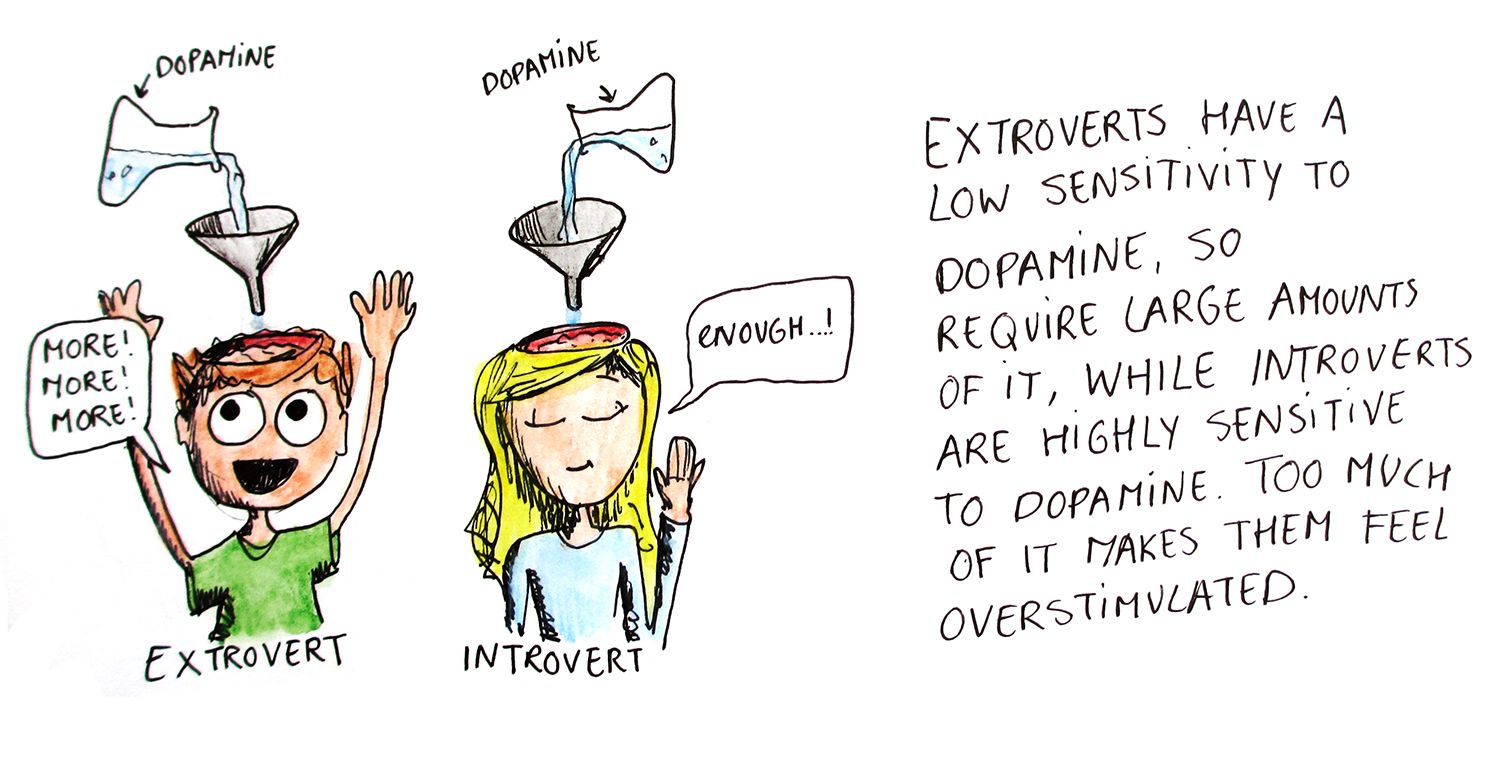- MBTI
- (⌐■_■)
I've always wondered why introverts "lose" energy and extraverts "gain" energy - and what that energy is exactly. This purpose of this thread is to compile any info on the the subject.
For you, dear reader, what is it about social interaction that makes you feel drained? Energized? When does it happen, or with whom do you notice it happening around?
This article from Psychology Today sheds a little light on the matter:
The article then mentions that introverts tend to be draining to others due to our intensity and need for consistently deep conversations. This is something I've certainly noticed about myself as a more introverted individual.
For me, I have a tendency (sometimes good, sometimes bad) to treat every social interaction as personal - getting to really know someone and connect, adding them to my social sphere, treating them like a friend, to empathize, relate and understand; however, I need to keep that sphere on the smaller side while I try to remember details about each person, so I tend to interact socially with less people over-all.
Contrasting this with one of my friends who strikes up a conversation with almost every single goddamn person he comes into contact with. It's frustrating to watch, but also amazing, how he just talks about nothing all the time with everyone, provoking reactions that to me would have to be analyzed and picked apart mentally - read deeper than just enjoying the fleeting moment of interaction.
And I think that's why introverts - especially feeler types - tend to become more exhausted from interactions, because trying to analyze and connect with the emotions of interactions is mentally tiring... which I believe also ties into the release of chemicals in the brain:

For you, dear reader, what is it about social interaction that makes you feel drained? Energized? When does it happen, or with whom do you notice it happening around?
This article from Psychology Today sheds a little light on the matter:
"You'll notice that there is a difference in how exhausted we are in dealing with different kinds of people," she says. "There are people who like to invest a lot of energy and get a lot back. Some people don't want to invest a lot and don't expect a lot back. The people who are deemed the extroverts in pop literature, the people who are social butterflies, what they get back on an interpersonal level is sufficient for them."
On the other hand, those of us who look for deeper connections are not satisfied by butterfly relationships. We invest a lot and require greater returns. Indeed. I can have a long, deep, intense conversation at a party and feel energized by it whereas an equal amount of time spent in shallow chit-chat just sucks the life out of me. Yet some quiet people, people who don't hold up their end of a conversation, also exhaust me.
"If what you're putting forth is not commensurate with what you're getting back, there's dissonance," says Grimes. And that dissonance is, well, exhausting.
The article then mentions that introverts tend to be draining to others due to our intensity and need for consistently deep conversations. This is something I've certainly noticed about myself as a more introverted individual.
For me, I have a tendency (sometimes good, sometimes bad) to treat every social interaction as personal - getting to really know someone and connect, adding them to my social sphere, treating them like a friend, to empathize, relate and understand; however, I need to keep that sphere on the smaller side while I try to remember details about each person, so I tend to interact socially with less people over-all.
Contrasting this with one of my friends who strikes up a conversation with almost every single goddamn person he comes into contact with. It's frustrating to watch, but also amazing, how he just talks about nothing all the time with everyone, provoking reactions that to me would have to be analyzed and picked apart mentally - read deeper than just enjoying the fleeting moment of interaction.
And I think that's why introverts - especially feeler types - tend to become more exhausted from interactions, because trying to analyze and connect with the emotions of interactions is mentally tiring... which I believe also ties into the release of chemicals in the brain:

Last edited:
